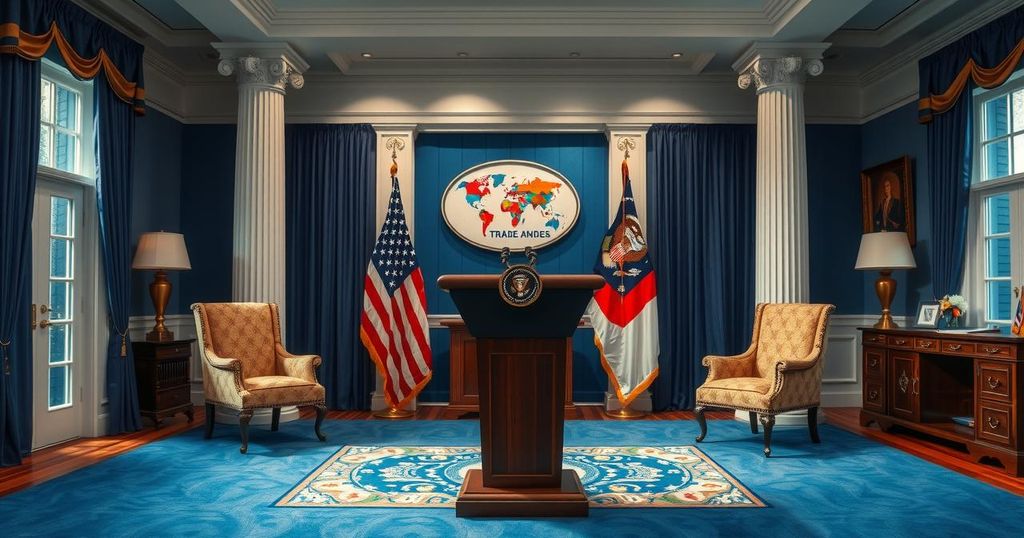Breach of Protocol: Trump Officials Share Sensitive Military Plans via Unsecured Messaging
Top Trump officials reportedly shared sensitive military plans regarding Yemen through a group chat on the messaging app Signal, accidentally including a journalist. This breach raises significant concerns about national security, compliance with federal laws, and the handling of classified information. The incident has elicited strong reactions from former officials and members of Congress, emphasizing the need for stringent protocols in communication concerning national defense.
Recent revelations suggest that prominent members of President Donald Trump’s Cabinet used an unsecured messaging app to discuss highly sensitive military operations concerning Yemen, unintentionally including a journalist in the conversation. Top officials, including Vice President JD Vance and Defense Secretary Pete Hegseth, discussed offensive actions against Houthi militants threatening international shipping while utilizing the app Signal, which the Trump administration verified as authentic but without an explanation for its usage for classified information.
The group chat convened by National Security Adviser Mike Waltz has raised significant concerns regarding national security protocols. During the discussion, operational details, such as targets and tactical sequencing, were shared, showcasing a neglect of established procedures for circuitously handling national defense information. Former officials expressed outrage, stating that such a breach could endanger American military personnel and processes designed to protect sensitive information.
Despite Signal’s design as an encrypted platform, risks remain due to potential hacking attempts by state-backed actors. A report by Mandiant detailed how Russian spies had sought access to the Signal accounts of Ukrainian forces, highlighting vulnerabilities in encrypted communications amidst efforts to safeguard national security.
The inadvertent inclusion of a journalist in the chat raises questions surrounding legal ramifications, including possible violations of the Espionage Act, which prohibits mishandling classified information. Traditionally, such incidents would trigger investigations by the FBI and Justice Department, but the involvement of senior Trump administration officials complicates potential inquiries.
Consequences for lower-level personnel who commit similar breaches could include loss of security clearances, emphasizing a double standard within the government’s handling of classified communication protocols. Current government messaging apps, including Signal, are prohibited from processing non-public Department of Defense information.
Former Defense Secretary Leon Panetta condemned the blunder, indicating serious risks posed by exposure of classified plans. Several established systems exist for secure communication of national defense information, and any transference to unsecured platforms is a severe violation of security protocols.
The communication from the National Security Council outlined that the messages were indeed authentic but emphasized the successful execution of military operations without compromising personnel safety. Additional discussions noted concerns of potential contradictions in U.S. foreign policy messages due to current operations against Yemen’s Houthi rebels.
Democrats in Congress have voiced alarm over the incident, with senior representatives intending to interrogate intelligence officials regarding the sharing of sensitive information via unapproved systems. The potential risks connected with this event raise important questions about the integrity and security implications of utilizing commercial messaging applications for critical communications.
In conclusion, this incident has heightened concerns regarding the sharing of classified information via insecure communication platforms. The disregard for established protocols raises significant questions concerning national security and proper handling of military operations. The response from both sides of the political aisle underscores the gravity of the situation, particularly given the implications for soldiers in the field. Moving forward, it is essential to reinforce the importance of using secure systems for national defense communications to prevent similar breaches.
Original Source: www.cnn.com








Post Comment